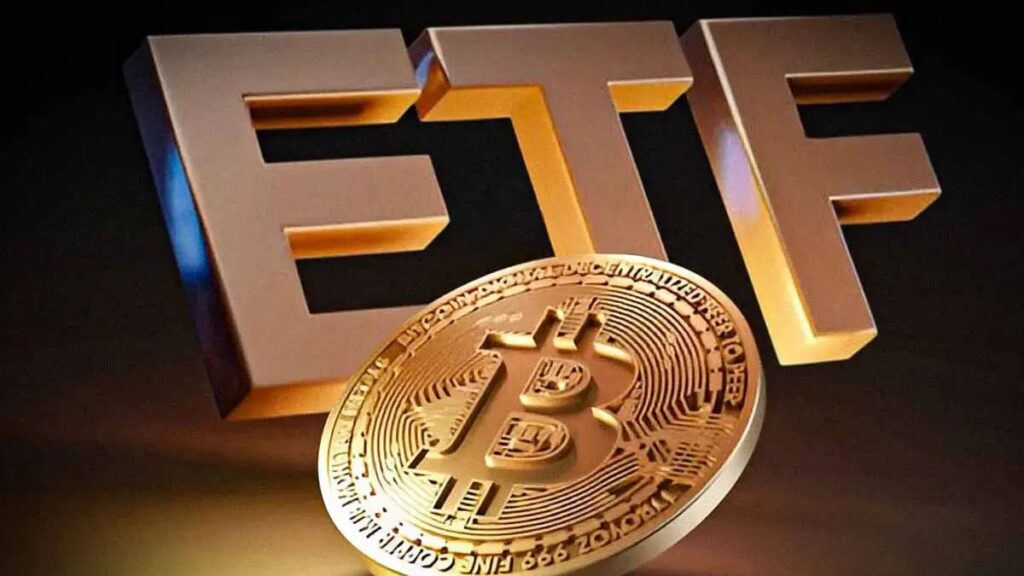TL;DR
- Bitcoin ETFs simplify investing by shouldering operational responsibilities, while buying BTC outright grants full asset control and custody.
- BTC trades 24/7 on crypto exchanges with variable liquidity and trading fees; ETFs, however, trade during standard market hours and usually offer tighter spreads.
- Direct BTC purchases require investors to safeguard private keys and navigate uncertain regulations; ETFs provide professional custody and greater predictability.
The rise of Bitcoin as a benchmark asset has spurred the creation of financial products that broaden its accessibility. Among these, Bitcoin ETFs allow investors to track BTC’s price without managing wallets or private keys. Yet buying Bitcoin on a traditional exchange has its own distinct advantages. In this article, we explore the fundamental differences between these two approaches.
Bitcoin vs. ETFs: Ownership and Control
When you buy Bitcoin directly, you take full ownership of the digital asset and its private keys. That lets you transfer it anywhere, use it as collateral, or store large amounts in cold wallets.
By contrast, purchasing a Bitcoin ETF means you only hold shares that mirror BTC’s price movements. You don’t have access to the underlying coins or the right to withdraw them. This indirect exposure simplifies the process but hands over custody control entirely to the fund provider.
Operational Differences
Bitcoin markets run around the clock, every day of the week. That nonstop availability lets traders react to price swings in real time and capitalize on sudden moves at any hour.
Bitcoin ETFs, on the other hand, only trade during regular stock exchange hours—typically Monday through Friday from 9:30 a.m. to 4:00 p.m. That schedule limits your ability to respond to after‑hours volatility, but it offers a familiar framework for investors used to traditional markets.
Liquidity and Market Depth
BTC liquidity depends on trading volumes across crypto exchanges, transaction fees, and user demand. During volatile periods, fees can spike and slippage may increase.
ETFs listed on established exchanges generally benefit from tighter spreads during market hours and the support of regulated market makers. Still, any orders placed after hours won’t execute until the next session opens.
Custody and Security
Direct Bitcoin holders must secure their own private keys, choosing between hot wallets for frequent use and cold wallets for long‑term storage. Any lapse in wallet management can lead to irreversible losses.
ETF investors delegate custody to the fund manager, who employs institutional‑grade storage solutions and insurance against hacks. Outsourcing security reduces the technical burden and individual risk, albeit at the cost of relying on a third party’s operational discipline.
Regulatory Landscape
Bitcoin operates in a largely unregulated environment, with each jurisdiction setting its own rules. That uncertainty can lead to sudden exchange shutdowns or shifts in tax treatment.
In contrast, U.S. Bitcoin ETFs must adhere to SEC regulations, file regular reports, and maintain transparency around custody and valuation processes. This oversight lowers the risk of unexpected regulatory actions and makes it easier for institutional capital to flow in.
Costs and Tax Implications
Crypto exchange users pay deposit, withdrawal, and trading fees—often between 0.5% and 4.5% per transaction—plus any spread. ETF investors face an annual management fee—typically 0.20% to 0.95%—and transaction costs when buying or selling shares.
Tax‑wise, selling BTC triggers a taxable event on capital gains, and additional events occur if you exchange BTC for other coins or earn staking rewards. With ETFs, you’re taxed only on the gain between your share’s buy and sell price, simplifying tax reporting.
Conclusion
Choosing between a Bitcoin ETF and direct BTC ownership comes down to your profile and comfort level. If you value absolute control and want to use Bitcoin actively, buying BTC is the way to go. If you prefer streamlined operations, regulated market hours, and professional custody, a Bitcoin ETF is likely more suitable. Clearly understanding these differences enables more informed decisions and lets you tailor your strategy to your investment goals














